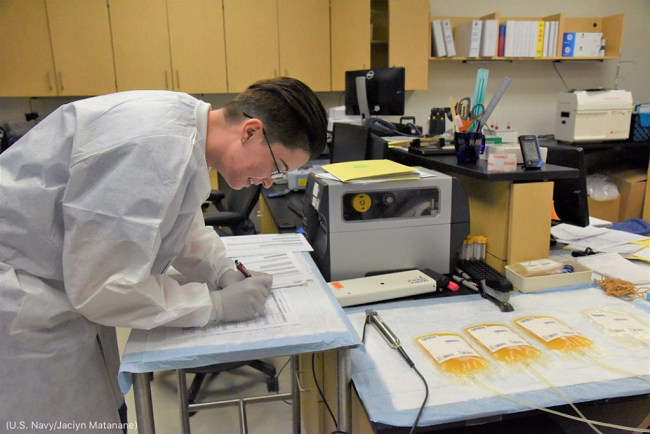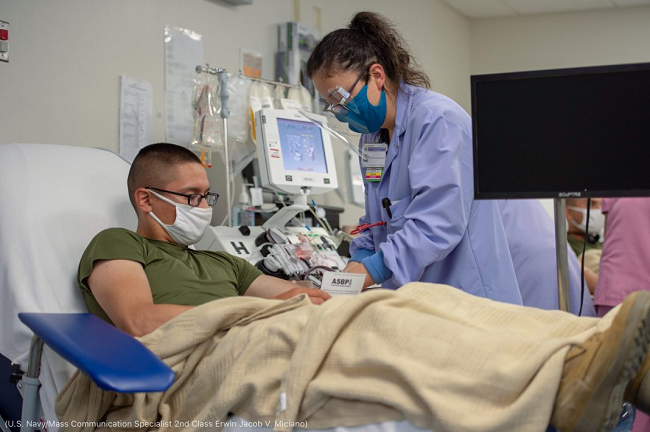COVID-19 survivors in the United States of America donate blood plasma to help develop treatments to fight the disease.
Scientists have identified COVID-19 convalescent plasma (CCP) — blood plasma from people who have already cleared the virus — as a potential treatment. CCP is often rich in antibodies that when transferred to a patient with COVID-19 may help the recipient fight the virus.
In mid-April, the U.S. Department of Defense began collecting the plasma and by mid-November had surpassed its goal of collecting 8,000 to 10,000 units. The ongoing military campaign has gathered 10,745 units to help fight the disease. Roughly 3,000 survivors have donated plasma in the effort.
READ ALSO: FG To Charge ₦250,000 for Conversion of Vehicles From Petrol To Gas
The U.S. Food and Drug Administration urges COVID-19 patients who have recovered for at least two weeks to donate plasma.
“I congratulate you for achieving thousands of units in such a short amount of time — that is no small feat,” Deputy Defense Secretary David L. Norquist said in a November 16 statement hailing both the donors and collectors of the plasma. “It is a testament to your hard work to conduct daily collections at blood donor centers and your willingness to venture into hot spots for mobile blood drives.”
While researchers are still studying the use of CCP, Norquist reports, early findings show that CCP is “safe and promising” as a potential COVID-19 treatment. Collecting and researching CCP as a treatment for COVID-19 is part of wide-ranging U.S. efforts to end the global pandemic. Through Operation Warp Speed, the Trump administration is investing billions of dollars to accelerate the development, clinical trials, manufacture and distribution of vaccines.
The U.S. government has supported numerous COVID-19 vaccine candidates, including three that appear to be highly effective in clinical trials at preventing COVID-19. As many as 300 million doses of a vaccine could possibly be delivered by the end of 2020, Norquist said.
The United States has also helped 130 nations battle the virus, he added. The support includes more than $20.5 billion for global health and health-security initiatives; development of COVID-19 vaccines, therapies and diagnostics; humanitarian aid; and emergency preparedness.














